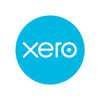Best Accounting Software
Accounting software like Zoho, TallyPrime, QuickBooks, Xero, FreshBooks, and QuickBooks Online are indeed among the best accounting solutions available. They are popular choices for businesses of all sizes due to their unique features, user-friendliness, and efficiency in keeping records and processing business account transactions.
Featured Softwares
Munim
Vyapar
Oracle NetSuite ERP
TallyPrime
List of 10 Best Accounting Software
Have Questions? We can help!
Get personalized recommendations from our experts on call!
Top Trending Softwares

Munim
Best Accounting Software In India. We are serving a wide array of customers with top-notch accounting and billing software!

Xero Accounting
Discover the power of Xero Accounting, the acclaimed web-based accounting software designed to cater to small business owners and their accountants.
Table of Contents
What is Accounting Software?

Accounting software is a software crafted to help accountants and bookkeepers record and report financial transactions. Features including invoicing, general ledger reconciliation, accounts payable and accounts receivable are among the recurring processes of business accounting software. Such softwares can immensely help in automating various business processes and improve operational efficiency and ensure accurate records.
Various accounting software can come with cutting edge features like depreciation of specified assets and multi-currency support, depending on size.
Who Uses Accounting Software?
The accounting department of a company varies in size depending on the size of the company. It also depends on the complexity of its operations. Accountants, controllers, chief financial officer (CFOs) and other accounting department member use accounting software
The accounting department includes people responsible for everything or many employees accountable for specific financial operations, including AP, AR, cash, management, and expenses.
a. Accountants: With the use of the latest accounting software, accountants do the financial reporting that may include forecasting, profit and loss statements and cash flow statements.
b. Accounting Operations: In many bigger organisations, external accountants may use such softwares to manage the finances of their clients.
c. Managers/ CFOs: With the use of accounting softwares, executives ensure that controls are built into how the data is compiled, access the company’s financial position and ensure that rules are built into their system. Most executives rarely handle transactions or other accounting tasks, however, require access to financial reports.
What are the types of Accounting Softwares?
There are various types of accounting softwares available in the market crafted to meet various organisational requirements. Some of them are:
a. Cloud Vs. On-Premises
i. Cloud: With a cloud based solution users can pay on the usage-based basis. These systems are easy to implement and do not require hardware investments.
However, the cloud often finds it tough to provide robust offline functionality that can allow users to access accounts and complete actions without an internet connection. Though cloud computing is cheaper, it is the best option for small businesses.
ii. On-Premises: On-premises systems mostly are client-server tools that require users to install or be browser-based. These tools or systems require investing in hardware and IT support. This can ultimately help in adding more security and can usually be customised without vendor involvement.
b. Based on the Size of the Company
c. Suite Vs. Best of Breed
d. Based on the Industry
Benefits of Accounting Software
Generally accounting software is loaded with many benefits that give your firm a distinct competitive advantage. Some of these benefits includes:
a. Saves TIme: Accounting solutions generally take time to get up and running. However, once you are done with the set up, it will save hours of manual accounting by automating previously time-consuming manual processes. It will also save you hundreds of hours by taking over time-consuming manual bookkeeping and accounting processes
b. Generates Financial Reports Quickly: It helps you in easily downloading your Earnings Statement, Balance Sheet, and more that contains key insights such as a month, quarter, or year’s income and expenditures with the click of a button in accounting software platforms.
c. Promotes Data Accuracy: Making changes to your records, doesn’t require manual updating of multiple cells in multiple sheets. Instead, the software will automatically update your financial statements and reports to reflect any changes you make to keep your data error-free.
d. Simplifies Payroll: Even though at some moment you may require a technical payroll system, many small businesses use accounting software to keep track of their payrolls. In addition, using this software can help you automate worker payroll, estimate healthcare and insurance contributions, and figure payroll taxes.
Features of an Accounting Software
a. Financial Reporting: Financial reports can normally be generated with any accounting program, however, some programs have more basic features than others, while others require you to pay more for advanced features.
However, if you need precise financial reports, you must ensure that they’re present in the software application or your chosen plan. Detailed information can assist you in making informed business decisions based on your financial data.
b. Bank Feed: Such a feature can help you connect your business bank and credit card accounts to receive daily transaction updates. Most people like this feature as it saves time by not manually uploading transactions. It also lets you see a daily overview of your accounts rather than just monthly.
c. Recurring Invoices: Recurring charges or subscriptions can be scheduled or automatically billed with this feature. You can also set how frequent invoices are to be sent, like daily, monthly, weekly or annually.
d. Integrations: The software can be connected to multiple programs easily and is time saving. Connecting to different programs enables you to work on data from multiple platforms and data moving or transferring is not required. Popular integrations include payroll, payment processing, point of sale systems, and customer relationship management.
How to Buy Accounting Software?
Compare Accounting Software Products
Market is all about requirements, and buyers today look out for options on the basis of their needs or requirements. Today, there is softwares in the market crafted to assist particular industries like retail, manufacturing, restaurant/fast food etc.
Accounting software crafted for small businesses often do lack in advance features but are easy to use. After reviewing a long list of softwares, buyers can narrow down to the best, based on their budget. Softwares are readily available to fit all pockets, along with free to use too.
Selection of Accounting Software
Contract negotiation is very crucial before starting a business relationship. Whether it’s about performance protections,security protection, or just ensuring both parties agree on what they want from each other, gathering all relevant information is essential before signing off on the deal.
Best Accounting Software for Small Businesses
The list of accounting software for small businesses is long, however, some of the best among the list are:
a. Sunrise
b. Zoho Books
c. Microsoft Dynamics 365
d. Wave
e. mybillbook
f. Vyapaar
g. Netsuite
h. Xerox
i. AlignBooks
j. SapERP
k. Blackline
l. Freshbooks
m. Quickbooks Online
n. Tally Prime
o. Sap Business One
p. Odoo ERP
q. Sage Intact
r. Free Agent
Comparing top Accounting Softwares
Comparing every other accounting software in the market is gonna be tough. However, after a detailed research and comparing the top 20+ accounting softwares, we have sorted the top five best suited for small businesses. Here are the top five accounting softwares for small businesses.
Challenges with Accounting Software
Obviously accounting softwares is helpful, but not all are completely reliable. They also have challenges. And business owners and executives should be aware of some potential limitations and challenges of such softwares before investing in it. Some of the major challenges includes:
a. Internationalisation: All softwares don’t support multiple currency transactions and businesses just can’t use any accounting software to conduct transitions outside their national borders. The best accounting tool should be able to handle transactions in different currencies and languages.
b. Compliance: Financial regulations always vary with accounting standards and they vary widely. Not all accounting systems comply with all regulations.However, basic financial statements & reports are provided for compliances purpose, but buyers need to ensure before that industry specific compliances features are included.
c. Access to sensitive financial data: Along with a lot of personal and financial data, a lot of accounting softwares store Bank accounts, credit card information, and other confidential information, such as important ID numbers. So it’s crucial to limit the total number of users to the platform and the data. It is also important to use other techs to ensure complete protection of the data from external threats like viruses and hacking attacks.
Accounting Software Trends
Things move faster in a technological environment, and accounting software is no exception. As part of this change, accounting software solutions are becoming more affordable with more and more added automation features and integrations. Below is a list of the top accounting software trends for 2023:
a. Bots & Artificial Intelligence: WIth the rise of AI, developers are profoundly using it to create better softwares for a better tomorrow, however, the use of AI for accounting is still in its infancy, but more and more vendors are adding it to their services. Many vendors have released automated assistants that help accountants with their daily tasks utilising machine learning and artificial intelligence.
WIth the proper involvement of AI in accounting, intelligent assistants can benefit all types of businesses, including freelancers and small businesses.
b. Two-tier Implementation: Places where a single accounting solution or ERP system lacks in solving issues, companies use multiple accounting solutions and ERP systems to manage their finances. Sometimes a manufacturer might choose an ERP system with strong production capabilities but weak accounting capabilities and another accounting solution to meet their needs.
These are softwares that help keeping record transactions, download financial statements and reports, manage customer information, send invoices, share financial information with an accountant and file business taxes.
Accounting softwares has features that can function all that of a bookkeeping software, along with more analytical accounting functions, such as cash flow analysis and forecasting. While a bookkeeping software is only limited to bookkeeping. They focus on data entry and storage. It is used to keep track of your revenue and expenses.
Accounting errors cause up to 40% of losses to businesses. However, with the help of accounting softwares, such losses are eliminated. But it would be great to know which accounting processes can be automated effectively and the ones cannot be. These softwares can automate invoices, payroll, expense reports etc.
These softwares are crafted to automate and streamline various financial management tasks like invoicing, expense tracking, payroll management and reporting.
It depends. Yes, it totally depends on the particular needs and requirements of the small businesses. However, some known solutions are QuickBooks, Wave, Zoho Books & FreshBooks.
Businesses generally need accounting software that can handle tasks such as invoicing, expense tracking, payroll management, and financial reporting. However, additionally, few also may require integrations with other programs or software and better customization options.
Yes, there are many accounting software programs that offer invoice generation features. These can be convenient to businesses that generate and manage invoices.
An online accounting service provides users or businesses with access to a team of accounting professionals to help them in completing tasks like bookkeeping, tax preparation and financial reporting.
Many Business processes ranging from invoicing, to expense tracking, payroll management, financial reporting and inventory management can be automated with simple accounting software. This softwares with its automation feature, helps businesses save time and increase efficiency.


